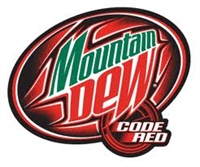
Christopher Heine. Mountain Dew's problems with cultural sensitivity this week culminated with the pulling of its "Felicia the Goat" spot today (1/05/13), after suffering similar marketing damage when the family of Emmett Till during the last several days denounced the brand's sponsorship of rap artist Lil' Wayne. The rapper negatively references Till - an African-American who was brutally murdered during 1955 in Mississippi after allegedly harassing a white woman - in his "Karate Chop (Remix)" tune. What's more, both developments come on the heels of Reebok, an Adidas property, firing hip-hop artist Rick Ross for describing what seems to be a date-rape scenario in his lyrics.
It appears obvious that some brands desperately want to tap young urbanites while signing up their edgiest musical heroes, such as Lil' Wayne, Ross and Tyler, The Creator - who produced Mountain Dew's spot. But do six-figure-salaried marketers actually know what they are doing while trying to reach the street? And are these examples once again showing the advertising world's lack of diversity?
Larry Woodard, CEO of Graham Stanley Advertising, suggested there's no excuse for not having minorities in the campaign decision rooms. "There are enough urban-savvy marketers to fill a phone book who can help Mountain Dew connect with the urban audience and select the right material from the right artists," he said.
Woodard, an ad-world vet who has spoken regularly at forums on multicultural marketing, was asked about his key takeaway from Mountain Dew and Adidas' plight. "Like reaching any other market, it is important to have the right curator," he explained. "The urban market is layered and nuanced. Its audience is wide and spans generations. Many times when companies make mistakes, they've tried to take the path of least resistance or a simpler path and, sometimes inadvertently skip important steps."
Myra Burks-Davis, CEO of MBD Strategic Communications, added, "[Mountain Dew] is back-pedaling because they didn't do their due diligence. And right when I heard about the video, I thought, 'There probably wasn't a person in the boardroom who understood the target demographic.'"
Mountain Dew has historically done extremely well in Great Plains and Southeastern states with suburban and rural youth but has struggled connecting with the inner-city segment. The brand's parent, PepsiCo, declined comment after the Mountain Dew fiasco made social-media rounds this afternoon.
"It is possible to get street cred when you really tap into a subculture," Woodard from Graham Stanley said. "However, it works much better when you don't alienate other key audiences in the process."
Yuriy Boykiv, CEO of Gravity Media, compared Mountain Dew's spot to another recent brand fiasco - Ford's envelope-pushing, allegedly sexist cartoon ad that depicted the Kardashian sisters tied up in the back of a car.
Mountain Dew was in "just bad taste," Boykiv said. "The spot is using stereotypes to sell a product, which is never a good strategy. I [saw] it done by a lot of general-market agencies 10 years ago...However, seeing it in 2013 makes me think people don't learn. I do not think [Mountain Dew's] spot is racist, but it is poorly done."
Indeed, it didn't go well for the brand - and PepsiCo appears to realize that. "We understand how this video could be perceived by some as offensive," a rep said this morning, "and we apologize to those who were offended."
Source: http://www.adweek.com/news/advertising-branding/mountain-dew-fiasco-shows-brands-desperately-want-street-cred-149079
Image source: http://www.awardshowentries.com/codered/images/codered_logo.gif
 Profile
Profile  Client Snapshot
Client Snapshot  Tools
Tools  Resources
Resources  M-News
M-News  Contact
Contact
